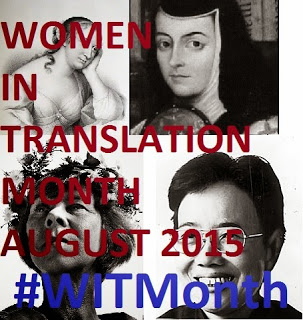Alina Bronsky, The Hottest Dishes of the Tartar Cuisine (2010)
Translated from the German by Tim Mohr, 2011
 I would call this book delightful, but that doesn’t seem quite the right word for a novel with such a splendidly awful protagonist, and which actually carries quite a bitter sting. I was taken with The Hottest Dishes of the Tartar Cuisine from the first two paragraphs, so perhaps I’ll quote those:
I would call this book delightful, but that doesn’t seem quite the right word for a novel with such a splendidly awful protagonist, and which actually carries quite a bitter sting. I was taken with The Hottest Dishes of the Tartar Cuisine from the first two paragraphs, so perhaps I’ll quote those:
As my daughter Sulfia was explaining that she was pregnant but that she didn’t know by whom, I paid extra attention to my posture. I sat with my back perfectly straight and folded my hands elegantly in my lap.
Sulfia was sitting on a kitchen stool. Her shoulders were scrunched up and her eyes were red; instead of simply letting her tears flow she insisted on rubbing them into her face with the backs of her hands. This despite the fact that when she was still a child I had taught her how to cry without making herself look ugly, and how to smilr without promising too much.
This voice belongs to one Rosa Achmetowna; already we get a sense of the kind of person she is: concerned about how she appears (which must be proper), and possessed of a very low opinion of her daughter.
What we see shortly after is that Rosa will go to extraordinary lengths to achieve her goals, and that she’ll change her attitude in a heartbeat if it suits her. Her first reaction to Sulfia’s pregnancy is to try to stop it; her folk remedies don’t work, but a knitting needle does the trick – except it turns out that Sulfia had twins, and one of them comes to term. Rosa is horrified at the thought of Sulfia having a child – until little Aminat is born, and proves (unlike Sulfia) to share her grandmother’s Tartar features. Aminat promptly becomes the apple of Rosa’s eye, so much so that Rosa thinks the girl would be better off with her than Sulfia.
Much of the humour in Alina Bronksy’s book comes from seeing just how far Rosa is prepared to go. For example, when Rosa is casting about trying to find Sulfia a good husband, she learns of a German man in a coma who’s been brought into the hospital where Sulfia works (Dieter Rossmann; “What a nice name!” says Rosa), she sees her chance, even entertaining the thought that Sulfia could tell him when he wakes up that the two of them are in a relationship, in case he’s lost his memory. Rosa is even more delighted to discover that Dieter is a journalist researching Tartar cuisine – until she finds out that he cooks himself, at which point she wants nothing more to do with him. That changes again when the prospect arises of the family being invited to move to Germany, where Rosa thinks they’ll have a much better life.
Rosa has a very clear image of herself and her worth: she always thinks that she’s the best looking, the best dressed – better than those around her. How much of what she does is for the good of her family, and how much for her own self-worth, is open to question; the two are so bound up with each other that perhaps there is no difference in Rosa’s mind. The real sting of the novel comes from seeing how Rosa’s view of herself doesn’t always correspond with reality. When her family makes it to Germany, Rosa gets a job as a cleaner; she’s very pleased at this, and suddenly we experience the jolt of recognition that Rosa’s high opinion of herself may not be as high as we thought.
This feeling of dissonance returns – though developing more slowly, and with a more melancholic undertone – as Rosa grows older, and starts to lose her grip on the world around her. If she was out to improve her family’s lot in life – well, that’s happened in some ways, but not in others. If she was out to improve her own, I suppose that has also happened, if not quite in a way Rosa would have anticipated. In other words, the outcome is a typically bittersweet jumble of life – but the book that chronicles it is a joy. Bronsky has one other novel in English, Broken Glass Park; you can be sure that it’s on my to-read list.
Elsewhere
Some other reviews of this book: Janet Potter for The Millions; Boston Bibliophile; Lizzy’s Literary Life; Leafing Through Life.
Like this:
Like Loading...


Recent Comments